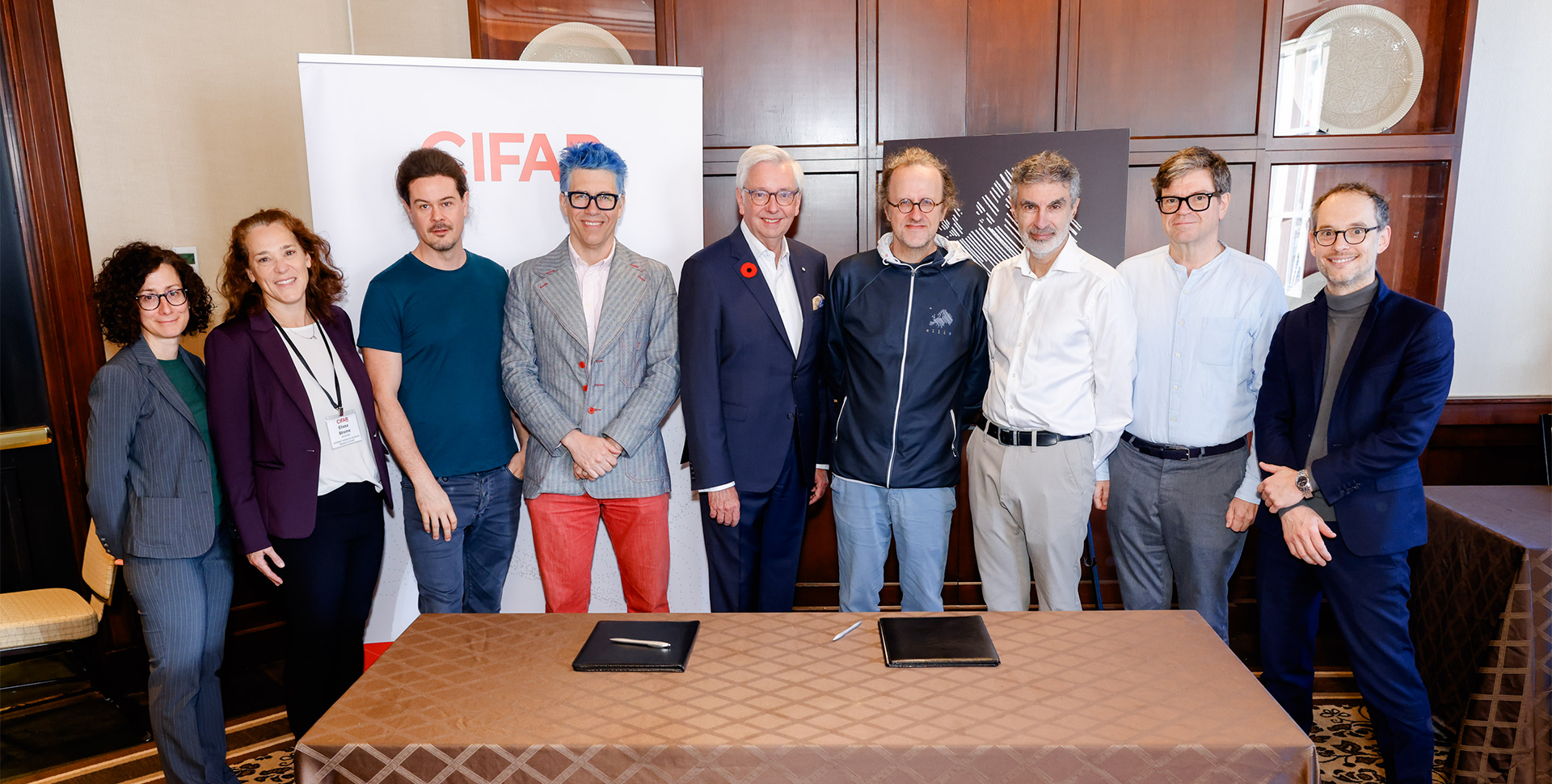By: Liz Do
14 Nov, 2024

CIFAR is building momentum under its new Strategy, forming key global partnerships with top science institutions in recent months.
“We know excellent research is done all over the world,” said Leah Soroko, Director, Global Research Partnerships. “We want to make sure that CIFAR continues to bring in perspectives and expertise from across the globe to inform the research our programs support.”
In October, Stephen Toope, President and CEO of CIFAR, and staff in the Research Office traveled to Kyoto, Japan, where they met with representatives from science institutions based in Japan, Germany, Taiwan and South Africa.
“The response was very positive,” said Mathieu Denis, Executive Director, Research and Partnerships. “High-level people in ministries, leadership at universities and major funders recognize the urgency of advancing international research in emerging fields, and they see the value of long-term funding being ready to take risks to allow those fields to mature.”
In Kyoto, CIFAR members visited the University of Tokyo’s International Research Center for Neurointelligence (IRCN) to renew a Memorandum of Understanding (MOU), solidifying CIFAR and IRCN’s continued mutual collaboration.
Both organizations align on their mission: mobilizing forward-looking researchers who work on some of the toughest issues facing science and humanity. IRCN is working to understand the principles of the developing brain, with the ultimate goal of addressing cognitive disorders and developing next-generation AI technologies for society’s benefit.
Toope and Denis also met with leadership at six different universities and science organizations to explore future partnership opportunities in Asia.
In Switzerland, CIFAR and the Geneva Science and Diplomacy Anticipator (GESDA) deepened their existing partnership. Toope took part in a panel discussion at the GESDA Summit, addressing the complex topic of trust in science. The session explored how to maintain scientific integrity in a polarized world and how international collaboration can help uphold scientific values. CIFAR’s strategy includes a strong focus on exploring emerging issues and opportunities “on the horizon.” To support this work, CIFAR and GESDA signed an MOU in May to strengthen their collaboration in the realms of research foresight and scientific anticipation.
Back in Toronto this month, CIFAR signed an MOU with ELLIS, a pan-European AI research network modeled after CIFAR. Founded in 2018, ELLIS focuses on machine learning as the foundation of modern AI. It aims to advance AI development while upholding the values of open societies by establishing a collaborative, multi-centric research laboratory.
In 2020, ELLIS started a doctoral and postdoctoral program for Learning and Intelligent Systems. The program provides trainees with access to a pool of more than 200 potential advisors currently based across Europe. Since 2020, the program has received more than 8,000 applications. With an acceptance rate of around 10 per cent, the program has built an outstanding reputation.
The agreement will open the program to CIFAR fellows (including but not limited to Fellows of the Learning in Machines & Brain program) and holders of Canada CIFAR AI Chairs, who are interested in joining the pool of eligible advisors.
“This is a really great example of the impact that CIFAR has, as well as the ‘multiplier effect’ of international research collaboration,” said Soroko. “CIFAR’s model inspired the concept for ELLIS, and now we can connect two excellent research networks and provide outstanding training opportunities for the next generation of researchers, and in particular, strengthen the knowledge exchange between Canada and Europe.”
“To build a positive future with AI, we need world-class science. The single most important factor for this is the quality of talent we attract,” shared Bernhard Schölkopf, Scientific Director at ELLIS Institute Tübingen. “The ELLIS network was founded with this purpose in mind, and the CIFAR-ELLIS collaboration agreement will make us even more attractive for young scientists.”
Looking ahead to the new year, CIFAR has been invited to meetings in South Africa and Singapore.
“CIFAR’s new Strategy emphasizes building a robust network of partnerships to deepen our global research capabilities and impact. Our engagements in Japan and Switzerland, as well as our recent MOU with ELLIS, will be instrumental in advancing this mission,” said Stephen Toope, President and CEO of CIFAR. “These new partnerships with leading institutions around the globe will bring diverse perspectives and expertise to better address the biggest challenges facing humanity.”